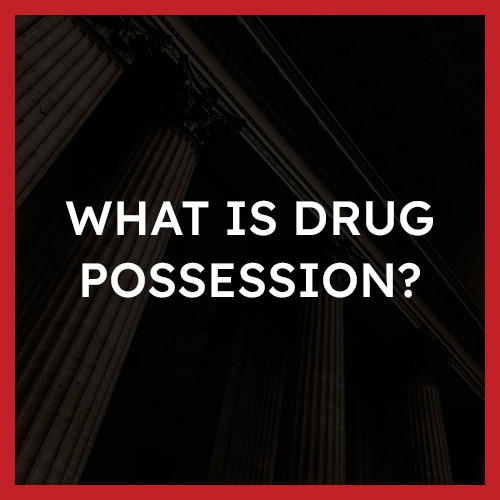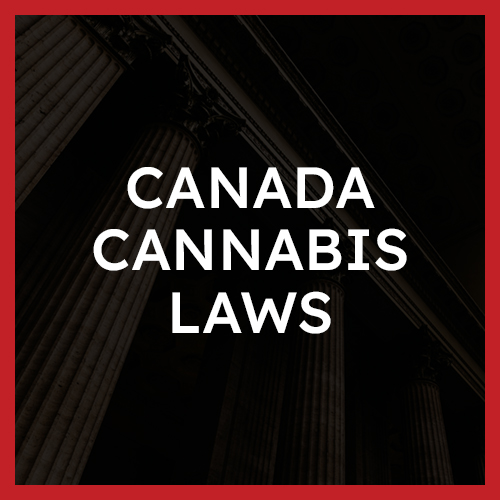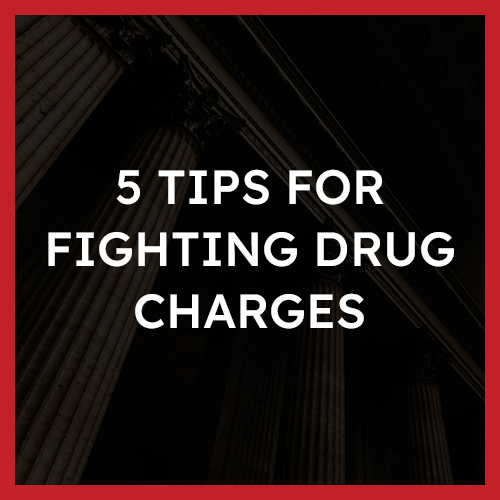What is drug possession?

The CDSA is an act that was passed by the federal government in 1996. It provides 8 different Schedules or categories of controlled drugs. If a person is caught to be in possession of one of the drugs listed in the CDSA, they can receive a criminal penalty depending on the Schedule and the quantity of drugs.
A charge for possession will arise when the police find a drug listed in Schedule I, II, or III on your person or on your property, and they believe that you had this drug for personal consumption.
In order for you to be convicted of possession, the Crown will need to prove beyond a reasonable doubt that:
- The drug was in fact a substance listed in the CDSA;
- You knew what the substance was;
- You knew that you were in possession of the drug; and,
- You intended to be in possession of the drug.
The Element of Possession
Possession is a tricky concept because in law the drugs do not need to be yours in order for you to be charged with possession, nor do they need to be on your person or your property. In law, something can be in your possession when:
- It is in your personal or actual possession–for example, it is in your pocket;
- You have knowingly placed it in the personal or actual possession of another person so they could hold onto it for you; and,
- You have knowingly placed it or stored it somewhere, and can access it for your personal benefit, or the benefit or someone else.
You can also be found in possession when you own something jointly with another person, or when you hold onto something for another person. For example, if you allow a friend to store drugs in your house, you can be found guilty of possession even though the drugs are not yours.
The Element of Knowledge
The knowledge component of possession is also not as simple as it may seem. In order for the Crown to prove knowledge, it is not even necessary that there is direct evidence that you knew you were in possession of drugs: knowledge can be inferred from the circumstances. For example, if you were driving in a car with two other people who were smoking drugs, it can be inferred that you knew that there were drugs in the car.
In law, you will also be deemed to have the knowledge required for this offence if you were wilfully blind with respect to whether you were in possession of the drugs. Specifically, wilful blindness will be found where, due to the circumstances, it is almost certain that you would have suspected that you were in possession of illegal drugs, yet deliberately chose not to ask questions that would confirm or disconfirm that fact. For example, wilful blindness would be found where an accused had reason to suspect that her boyfriend had put cocaine in the trunk of her car, but refused to check the trunk so she wouldn’t “know” that she was in possession of the drugs.
It is also important to note that it does not matter what kind of drug you thought you possessed, so long as you knew the drug was a narcotic. For example, an accused cannot argue that the knowledge component of the charge has not been made out by stating that they thought they were in possession of cocaine when they were actually in possession of mescaline.
The Element of Control
In order for the element of control to be proven, there needs to be evidence that shows that you were able to direct, guide, or restrict the movement or use of the drugs. There does not have to be direct evidence of your ability to control the drugs as knowledge can be established using circumstantial evidence like text messages, telephone recordings, or the evidence of the accused’s ability to control the area where the drugs were found.
The Penalty for Possession in Canada
The penalty for possession in Canada will vary depending on what type of drug was found in your possession, the quantity of the drug, and whether or not you have been convicted of a similar offence.
Some charges for simple possession, like possession of marijuana under 30 grams, are offences punishable by summary conviction and no more than a fine and 6 months in prison. However, simple possession of drugs like cocaine or heroin are hybrid offences and can be punished either by summary conviction or by indictment. If the Crown chooses to proceed by way of indictment, you could spend up to one year in prison for many possession offences. If this is a repeat offence, you can expect that the severity of your penalty will increase so as to deter you from committing the same offence again in the future.
About The Author
Ask A Question
We endeavor to respond to questions within 24 hours. If your matter is urgent, please call our office or submit a request for a free consultation.







